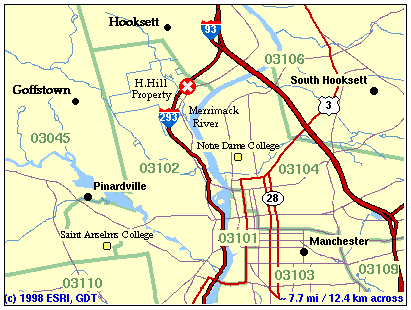Many tenets of the "urban open space philosophy" fall in the "easier said than done" category. For example, when city-owned land becomes available that is well-suited for "open space" or "protected" designation, citizens may instead hear much about the advantages of various proposals to develop the land, especially when many city officials are convinced that this is the appropriate approach to take. Theoretically, however, the electorate should be the ultimate decision makers in such matters, and when provided with appropriate information, in all likelihood they will opt for land protection.
During 1998, an issue of this nature arose in Manchester. A large tract of land (over 800 acres) in the northwestern corner of the city, known as the Hackett Hill property, was slated to become city-owned land.

The property, which is almost entirely undeveloped, consists primarily of wetlands and forested uplands, as well as some "open water". It has great biodiversity, including a number of rare or endangered species. For wetlands scientists and other environmentalists, it was a "given" that the entire property should be placed in a protected category where it would remain forever. However, instead, a number of commercial uses for portions of the property were proposed. All such notions were based on the premise that it is unimportant to maintain the natural integrity of the land parcel, and that the land can easily be divided into "developable" and "non-developable" portions.
In this portion of the website the following information is provided: (1) a summary of the history of the planned Hackett Hill land acquisition; (2) a description of the natural history of the property; (3) an explanation of why development of the purchased land will be hurtful to the biodiversity of the property; and (4) an alternative to development.